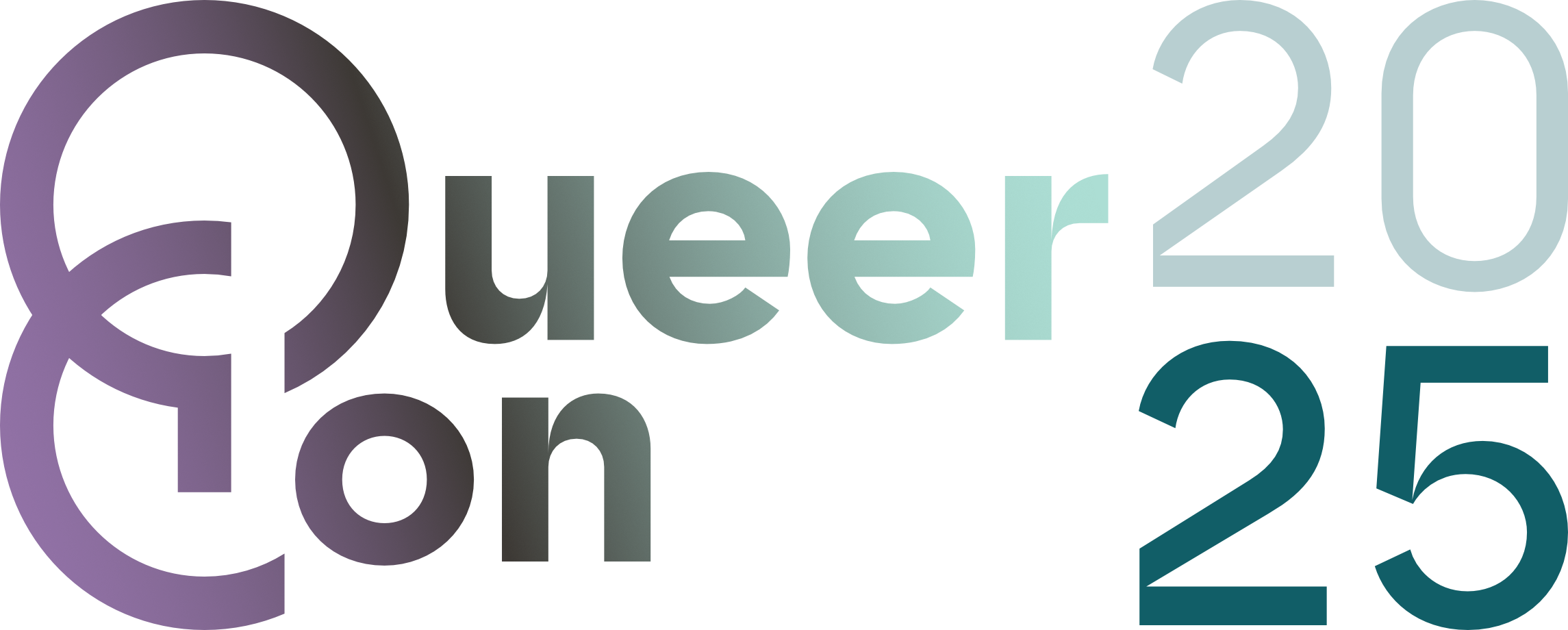All panels and lectures are held in Bergmanssalen, on the first floor (accessible by elevator).
Thursday, July 31st
Where do we tell our stories? – Panel discussion, English
15.00 – 15.45
We take a look at the state of different storytelling media and platforms in 2025 – where are queer stories and characters allowed, how are they restricted, what are the frontiers of freedom of expression in the queernerdy universe?
Participants: Isabella Morgonro, Emil Weckström, Lukas Renklint, Erland Nylund
Moderator: Amanda Stenback
Ancient magic in modern games – Lecture, English
16.00 – 16.45
From ancient Sumerian exorcisms to medieval clerical necromancy, history is chock full of rich magical traditions for us to be inspired by. In this walk I will explore how to leverage this deep history to empower magic in our modern RPGs as well as share practical insight from my current work.
Lecturer: Amos Johan Persson
Trans memes – Panel discussion, Swedish
17.00 – 17.45
Memes, inside jokes and BLÅHAJ are an important part of trans culture of the 2020’s. This panel will be discussing and reviewing quality trans fun, its importance for trans people and how to make your own.
Participants: Isolde Nurkkala, Signe Krantz
Moderator: Gabrielle de Bourg
LGBTQ and cosplay – Q&A, English
18.00 – 18.45
For many, cosplay has been a tool to discover or explore queer identities and expressions. In this panel, we will discuss the participants’ experience of cosplay in this context, how the community has developed, and what newcomers might want to know about cosplaying as a part of the lgbtqia+ umbrella. Audience questions will be welcomed!
Participants: Nathaniel Karlsson, Liam Hållams, Rebecka Winter, Robin Serrander
Moderator: Amanda Stenback
Gay vampires – Lecture, Swedish
19.00 – 19.45
Vampires have long been an important staple of popular culture. With so many iterations and popular book and movie series, the vampire is as immortal in reality as in fiction.
When someone imagines a vampire, they often imagine fangs, blood, capes, and homosexuality. From where did we get this mental association between vampires and homosexuality, and why is it still going strong today? In this lecture, we’ll be exploring the vampire and the homosexual stereotype. With a historical perspective starting from the Victorian era until today, this lecture will be detailing exactly what it is that makes vampires so gay.
Lecturer: Rebecka Winter
Host: Amanda Stenback
10-year-review of QueerCon and the history of queer-nerdy organising in Sweden – Panel discussion, English
20.00 – 20.45
The first QueerCon was held in 2015, inspired by many years of lgbtqia+ activism in Sverok and other nerdy organisations. A lot has happened since, both victories and setbacks. This panel will discuss the origins of QueerCon, how our conditions have changed, and what should be our contribution moving forward.
Participants: Chris Jonasson, Erland Nylund, Signe Krantz, Linnea Risinger Nathansson
Friday, August 1st
Nerdiness and norm-breaking – Lecture, Swedish
15.00 – 15.45
Robin Serrander tells us about contexts where nerdiness and norm-breaking meet. How is fanfiction and shipping associated with queer activism? How are LARPs used to question norms around gender and sexuality? How did cosplay become a more or less safe way for trans people to explore their identities? Bring your own reflections and questions to this lecture, because there will be plenty of space to share experiences and perspectives!
Lecturer: Robin Serrander
Neo-moralism in queer spaces: “Would somebody please think of the dirty children?” – Panel discussion, Swedish
16.00 – 16.45
Smut has had an important historical role in queer culture, but these last few years we’ve seen people distance themselves from the idea of having space for sex and smut in queer spaces for youths. Is this a case of some kind of “neo-prudism” and if so, what consequences might there be?
Participants: Emil Åkerö, Gabrielle de Bourg
How are we vilified today? – Panel discussion, English
17.00 – 17.45
A look on demonisation of queers through history and geography, in relation to modern forms of queer vilification. Homosexuality, transness and queerness has been both reverred and shunned in different cultures. However, when it comes to making queers into villains, it sometimes feels like the same old tropes and clichés are reused. In this panel we will discuss if this is true, and maybe offer some constructive criticism and creative input for the queerphobes!
Participants: Gabrielle de Bourg, Amanda Stenback, Robin Serrander
Moderator: Erland Nylund
The rise and fall of social media – and its marks left on the LGBTQ+ movement – Panel discussion, Swedish
18.00 – 18.45
For the past 20 years, various social media sites have arrived, dominated all forms of organizing, but lately been discussed more and more as a threat or barrier for democracy and inclusion. At this point we seem to be moving towards more closed-off options like Discord for community and coordination. What are the consequences? Are there people being locked out?
Participants: Linnea Risinger Nathansson, Anna Kärrstrand
Moderator: Linnéa Björklund
How to organize? – Panel discussion, English
19.00 – 19.45
Both the nerdy and the queer worlds is divided into a host of networks, platforms, organisations and movements. QueerCon began as an effort to create more things both queer and nerdy, and have done so as a non-profit organisation, through study circles and by cooperating with small and large organisations. This talk will both present some of the important forms of organising, and discuss what tools are important moving forward.
Participants: Erland Nylund, Siri Sandquist, Linnea Risinger Nathansson
